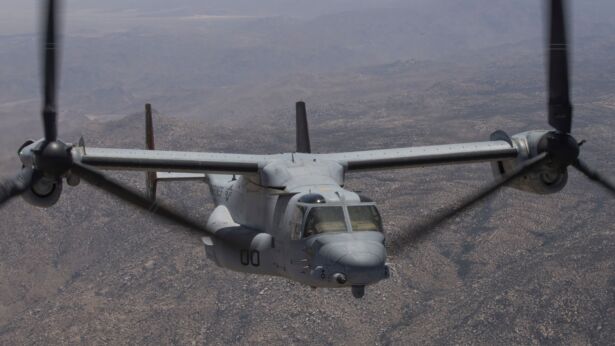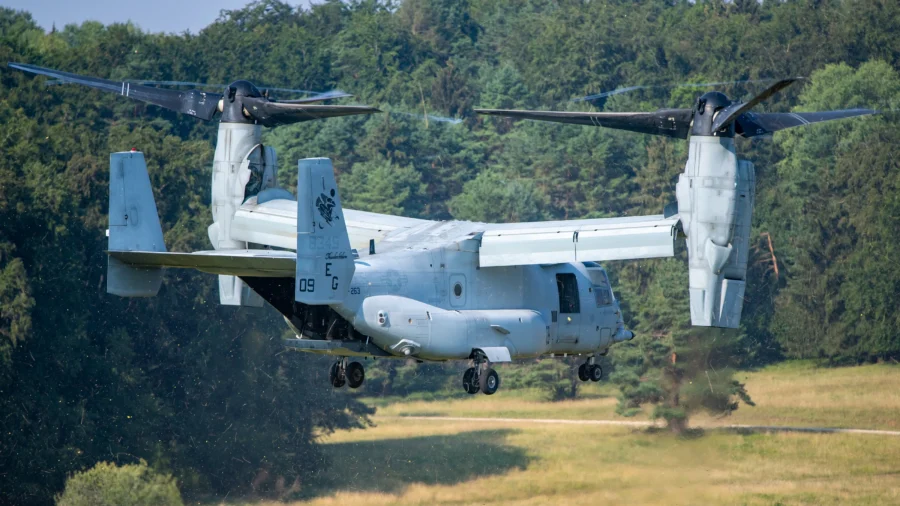Air Force Special Operations Command (AFSOC) has grounded the United States’ entire fleet of CV-22 Ospreys while an investigation into a Nov. 29 crash off the Japanese coast is ongoing.
Lt. Gen. Tony Bauernfeind, the AFSOC commander, said in a Dec. 6 media statement he had directed an immediate “operational standdown” of the Osprey fleet until the investigation into the crash off the shore of Japan’s Yakushima Island, Japan, is concluded.
So far, no timeline for the investigation and a possible end date have been revealed publicly.
Lt. Bauernfeind also implied the Osprey fleet would return to service at some point in the future.
This comes despite the latest crash claiming the lives of eight service members and the long history of Osprey crashes all around the world.
At this stage, search and recovery operations are still underway for the remains of two service members who are still missing following the crash. The Air Force officially concluded earlier this week that all eight who went down with the aircraft are deceased.
“The standdown will provide time and space for a thorough investigation to determine causal factors and recommendations to ensure the Air Force CV-22 fleet returns to flight operations,” Lt. Gen. Bauernfeind said.
According to Lt. Gen. Bauernfeind, the underlying cause of the crash in Japan is still unknown at this time. However, it has been suggested during the preliminary investigation that a “potential material failure” is at fault.
Lt. Gen. Bauernfeind provided no additional information about the incident or when the Osprey fleet might return to service. Further updates will be made as they become available, he said.
In a separate Dec. 6 media statement, the Naval Air Systems Command (NAVAIR) also said that “Out of an abundance of caution,” it was “instituting a grounding bulletin for all V-22 Osprey variants” immediately. NAVAIR said the decision was a direct result of the crash in Yakushima, and the grounding bulletin was to ensure everyone’s safety.
“While the mishap remains under investigation, we are implementing additional risk mitigation controls to ensure the safety of our service members,” the federal agency said.
“The Joint Program Office continues to communicate and collaborate with all V-22 stakeholders and customers, including allied partners.”
Japan had asked the U.S. military to ground all Osprey aircraft not engaged in emergency recovery operations following the Nov. 29 training mission crash. At the same time, Senior Japanese Defense Ministry official Taro Yamato announced all 14 of its Ospreys had been grounded for now.

Osprey crashes have plagued the U.S. military for years. A fatal crash that killed three in August led to the Marines ordering a safety review of the aircraft.
The fleet was also grounded earlier this year following yet another incident. Last year, AFSOC ordered a temporary stand-down of its Osprey fleet following safety incidents where the clutch slipped, causing an uneven power distribution to the rotors.
From The Epoch Times

